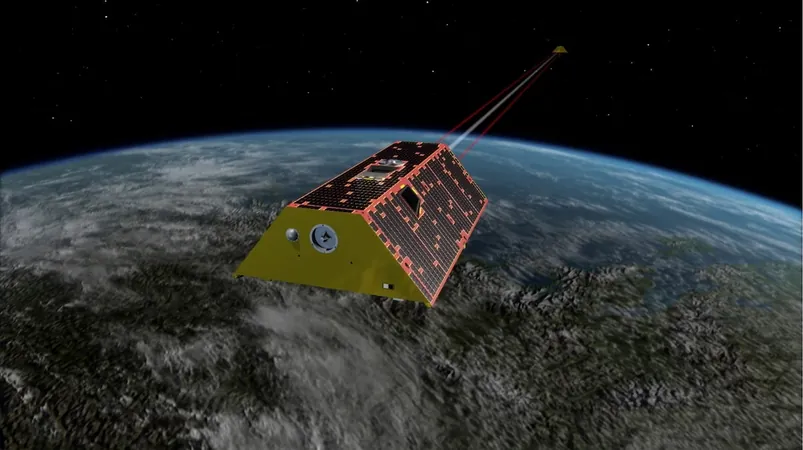
Shocking Findings: NASA Satellites Reveal Disturbing Decline in Global Freshwater Since 2014
2024-11-19
Author: Jia
Introduction
A team of international scientists has made a startling discovery using data collected from NASA satellites, indicating a significant and persistent decline in global freshwater resources beginning in 2014. This alarming trend was documented in a study published in the journal Surveys in Geophysics, which highlights the urgent water crisis facing our planet.
Research Findings
The researchers utilized the Gravity Recovery and Climate Experiment (GRACE) satellites to analyze terrestrial water storage (TWS) levels, uncovering that between May 2014 and March 2016, there was a drastic reduction in freshwater. Astonishingly, the data shows that as of 2023, these water levels have yet to recover to pre-2014 averages. Between 2015 and 2023, surface and groundwater levels were recorded to be approximately 290 cubic miles lower than the average from 2002 to 2014, which is not only alarming but also equivalent to 2.5 times the volume of Lake Erie, according to hydrologist Matthew Rodell at NASA's Goddard Space Flight Center.
Factors Contributing to Decline
The depletion of freshwater resources has been primarily associated with severe drought conditions, which have been further intensified by the powerful El Niño event of 2016, along with the increasing demands from agriculture and urban areas. A notable factor that triggered the decline was a record-breaking drought in northeastern South America, which set off subsequent dry spells globally, affecting regions in Australasia, North America, Europe, and Africa.
Impact of Droughts
Adding to this catastrophic scenario, UNICEF has reported that since 2023, the Amazon region is experiencing one of the worst droughts on record, worsening the situation that began almost a decade ago. These persistent droughts pose serious threats to public health, food security, and essential services worldwide.
Climate Change Factors
Scientists are increasingly concerned that escalating global warming is contributing to this freshwater scarcity. As the climate warms, more intense and frequent droughts are likely, leading to higher rates of evapotranspiration, which causes greater amounts of water to evaporate into the atmosphere. Additionally, changes in precipitation patterns may lead to heavy rainfall, causing water to run off rather than replenishing freshwater sources.
Expert Insights
Michael Bosilovich, a co-author of the study and a NASA Goddard meteorologist, elaborates, "When we experience extreme precipitation, the water does not effectively contribute to water tables; instead, it runs off." The rising temperatures not only amplify evaporation from land and water surfaces but also enable the atmosphere to retain more moisture, exacerbating the frequency and severity of droughts.
Looking Ahead
The future of our freshwater resources is uncertain, and scientists warn that continued decline may be on the horizon. Alarmingly, the European Union’s Copernicus Climate Change Service (C3S) has ominously predicted that 2024 could be the hottest year on record, exacerbating the already critical situation.
Conclusion
Rodell emphasizes that these findings may signal a troubling trend, remarking, "We don’t think this is a coincidence, and it could be a harbinger of what’s to come." This calls for immediate action and awareness regarding our planet's dwindling freshwater supplies, as the implications for humanity are dire. Will we be able to turn the tide before it’s too late? Only time will tell.



 Brasil (PT)
Brasil (PT)
 Canada (EN)
Canada (EN)
 Chile (ES)
Chile (ES)
 España (ES)
España (ES)
 France (FR)
France (FR)
 Hong Kong (EN)
Hong Kong (EN)
 Italia (IT)
Italia (IT)
 日本 (JA)
日本 (JA)
 Magyarország (HU)
Magyarország (HU)
 Norge (NO)
Norge (NO)
 Polska (PL)
Polska (PL)
 Schweiz (DE)
Schweiz (DE)
 Singapore (EN)
Singapore (EN)
 Sverige (SV)
Sverige (SV)
 Suomi (FI)
Suomi (FI)
 Türkiye (TR)
Türkiye (TR)